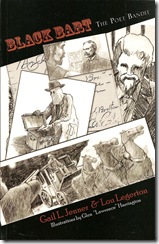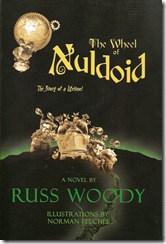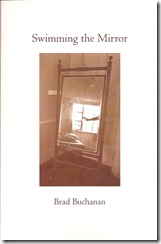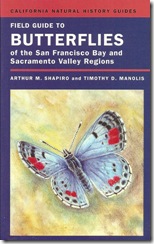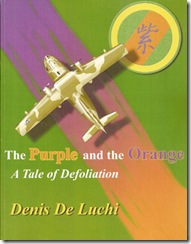Paradise author Lou Legerton, retired from Wells Fargo, is fascinated with the mysterious figure dubbed "Black Bart" by the press. He spent a dozen years researching the stagecoach bandit, the bane of Wells, Fargo & Company in the 1870s and 1880s, collecting documents and letters, visiting Civil War battlefields where he fought, even visiting his family's hometown of Plessis, New York.
But why did Charles E. Boles (a.k.a. Bowles or Bolton), a married man with three daughters, forsake his family and take to robbing stages in Northern California? He eluded capture for years, leaving doggerel as his calling card, served four-and-a-half years in San Quentin, was paroled in 1888, and then disappeared.
Legerton, together with award-winning writer Gail Jenner, a Chico State University graduate now living in Etna, California, have transformed the historical record into a novel, suitable for young adult readers, that attempts to take the "full measure" of the man. "Black Bart: The Poet Bandit" ($14.95 in paperback from Infinity Publishing), by Gail L. Jenner and Lou Legerton, is illustrated with line drawings by Glen "Lawrence" Harrington, and it's compulsively readable.
In the epilogue the authors quote from "the last known letter" to his wife, Mary Elizabeth, who had not heard from him in 15 years. "My Dear Family," Charles wrote, "how little you know of the terrible ordeal I have passed through, and how few of what the World calls good men are worth the Giant Powder it would take to blow them into eternity. . . ."
Boles is a man stung by financial hardship, a jobless veteran lured by the false promise of California riches, a rascal with good intentions. He relishes his dual existence as "gentleman" and "robber." "On July 25, 1878, he robbed the Quincy to Oroville stage, and unloaded more than $600 worth of valuables. He'd liked to have made more on the deal." And he left some verse, admired in the novel by Mary Vollmer, his mistress (though the record is unclear): "Here I lay me down to sleep, to wait the coming morrow. Perhaps success, perhaps defeat, and everlasting sorrow. Let come what will, I'll try it on, my condition can't be worse, but if there's money in the box, it's munny in my purse."
